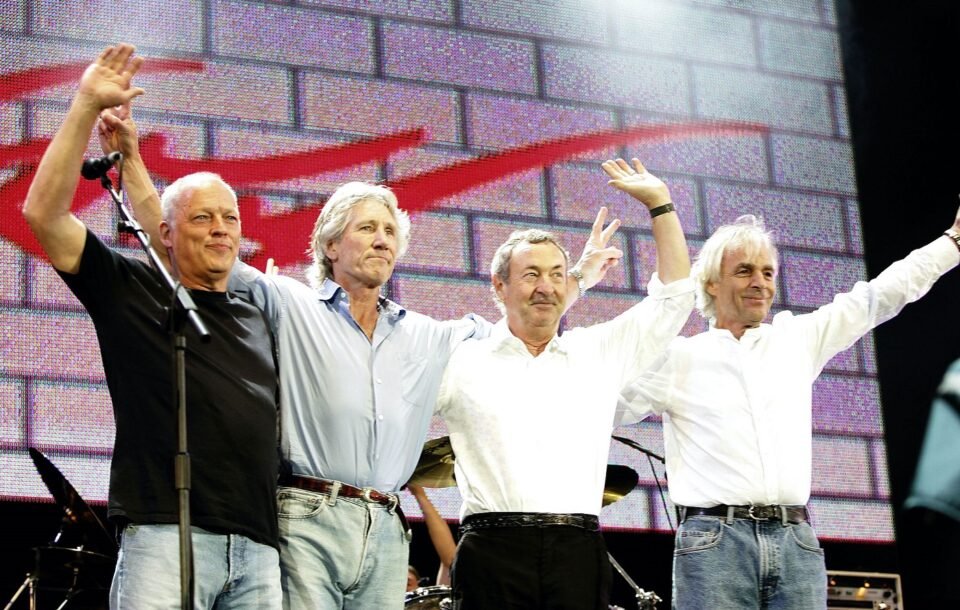Pink Floyd have reunited to record their first new material in 28 years, a protest song against the Ukraine war.
Hey Hey, Rise Up! features David Gilmour and Nick Mason alongside long-time Floyd bassist Guy Pratt and Nitin Sawhney on keyboards.
But the song is built around a spine-tingling refrain from Ukrainian singer Andriy Khlyvnyuk of the band Boombox.
Gilmour says the song is a show of “anger at a superpower invading a peaceful nation”.
But it is also intended as a morale booster for the people of Ukraine, and a call “for peace”.
Work on the song began a couple of weeks ago, when Gilmour was shown Khlyvnyuk’s Instagram feed. The singer had posted footage of himself in in Kyiv’s Sofiyskaya Square, fully armed and ready to fight the Russian invasion.
Facing the camera, Khlyvnyuk sang The Red Viburnum In The Meadow, a protest song written during the first world war, which has become a rallying cry in Ukraine over last six weeks.
“It just struck me that, as it is a capella, one could turn this into a beautiful song,” Gilmour told BBC 6 Music’s Matt Everitt.

By coincidence, Gilmour had performed live with BoomBox in 2015, at a London benefit gig for the Belarus Free Theatre – and he contacted Khlyvnyuk to seek permission.
“I spoke to him, actually, from his hospital bed, where he had a pretty minor injury from a mortar,” the star said. “So he’s right there on the front line.
“I played him a little bit of the song down the phone line and he gave me his blessing.”
The song was released at midnight on Friday, with proceeds going to humanitarian relie
The song carries special significance for Gilmour, as his daughter-in-law is the Ukrainian-born artist Janina Pedan.
He told the BBC she had inspired the artwork for the single, which contains the national flower of Ukraine, the sunflower.
“My daughter-in-law told us the story of a woman at the beginning of this conflict, giving sunflower seeds to Russian soldiers and saying that she hoped that sunflowers would sprout where they died.”
Gilmour said he found the “powerlessness of the West” in the face of Russian aggression “infuriating” but said he supported the ongoing sanctions against the country.
“It’s a shame that the people who suffer most are the ordinary people of Russia – but that is the way the sanctions work. It helps to create a discontent in that country which will hopefully, at some point, create some sort of change of regime.”
Asked how he felt about the UK government’s response to the crisis, he expressed frustration at the bureaucracy facing Ukrainian refugees who want to settle here.
“A lot of Europe is saying ‘welcome’ and our [government] is saying, ‘you need to get onto a computer and fill in forms’.
“My view would be to open the doors and sort of paperwork out later. But government doesn’t seem to be following that way of thinking.”
Roger Waters does not feature on the new recording – he left the band in 1985 and has only occasionally performed with them since, such as at the Live 8 concert in 2005.





